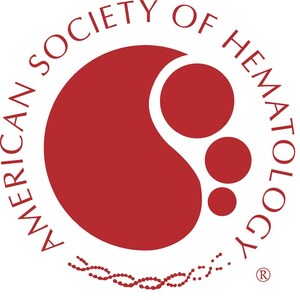WASHINGTON, April 6, 2017 /PRNewswire-USNewswire/ -- In 2012, the American Society of Hematology (ASH) committed to preserving blood disease research threatened by federal budget cuts to the National Institutes of Health (NIH) by establishing the ASH Bridge Grant Program. Today, ASH announced the names of five investigators whose research has been awarded $150,000 as part of the eighth round of ASH Bridge Grants.
Designed to sustain promising hematologic research proposals that score well but cannot be funded by NIH due to stagnant and uncertain funding, the spring 2017 ASH Bridge Grants will preserve programs at five institutions across the United States.
NIH is the world's top provider of medical research grants. While NIH received a welcome infusion of funding in 2016, the agency is still reeling from more than a decade of flat funding and spending reductions that have drastically reduced its ability to fund innovative research. As policymakers in Washington prepare to discuss the budgets for both the remainder of 2017 and the entirety of 2018, additional cuts to NIH funding remain a possibility.
"Now, more than ever, the ASH Bridge Grants are vital," said ASH President Kenneth C. Anderson, MD, of the Dana-Farber Cancer Institute. "This program allows scientific momentum to continue while encouraging the retention of promising researchers, especially in this time of uncertain NIH funding."
These grants will serve as a one-year bridge for researchers facing gaps in multi-year funding, allowing their focus to remain on bolstering findings and improving their NIH grant application rather than shuttering a project while applying for alternate funding. ASH expects the need for this type of support to grow as the NIH budget remains uncertain.
As one of the few medical societies to provide bridge funding, ASH has seen great success with the Bridge Grant program, with over 65 percent of recipients going on to receive an NIH research project grant (R01) or a large private grant. Additionally, over 70 percent of ASH Bridge Grant recipients surveyed report successfully publishing their findings.
"We are fortunate to be living in an era of rapid scientific advancement, and these awards help us ensure that brilliant researchers continue to contribute to our greater scientific understanding. When funding is unavailable today, tomorrow's cures cannot be discovered, and we all lose as a result," Dr. Anderson noted.
The latest round of projects to be supported by the ASH Bridge Grant program encompasses a host of basic and translational hematologic research. Projects funded include improving therapy for pediatric leukemia, advancing immunotherapy techniques, and regulating hematopoietic stem cell function. Since April 2013, ASH has awarded $10.45 million in Bridge Grant support to 87 investigators across 53 institutions.
The American Society of Hematology (ASH) (www.hematology.org) is the world's largest professional society of hematologists dedicated to furthering the understanding, diagnosis, treatment, and prevention of disorders affecting the blood. For more than 50 years, the Society has led the development of hematology as a discipline by promoting research, patient care, education, training, and advocacy in hematology. ASH publishes Blood (www.bloodjournal.org), the most cited peer-reviewed publication in the field, which is available weekly in print and online. In 2016, ASH launched Blood Advances (www.bloodadvances.org), an online, peer-reviewed open-access journal.
SOURCE American Society of Hematology
Related Links
WANT YOUR COMPANY'S NEWS FEATURED ON PRNEWSWIRE.COM?
Newsrooms &
Influencers
Digital Media
Outlets
Journalists
Opted In





Share this article